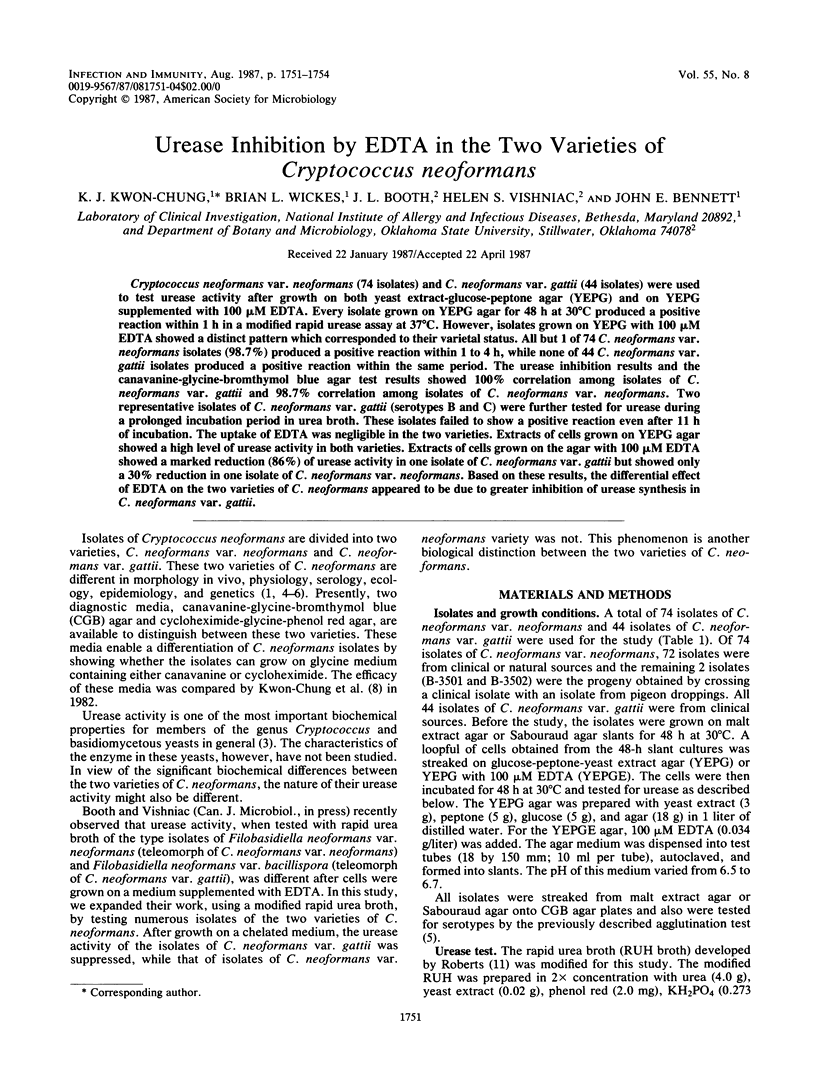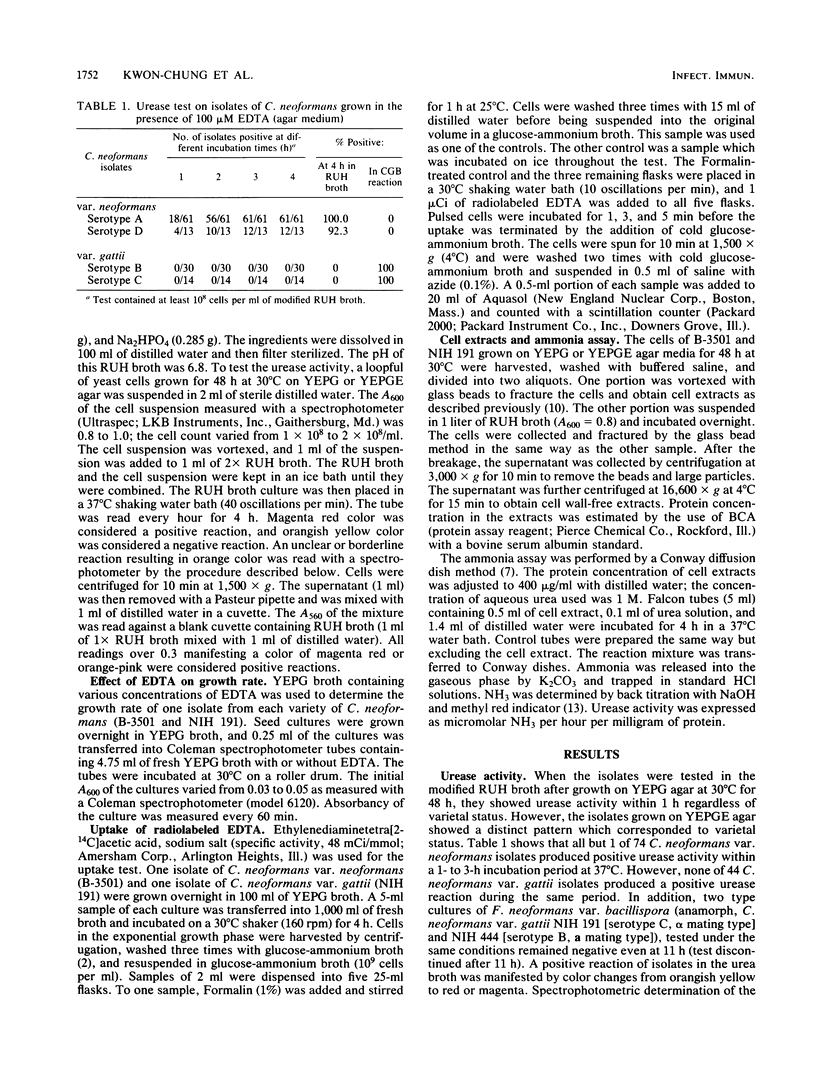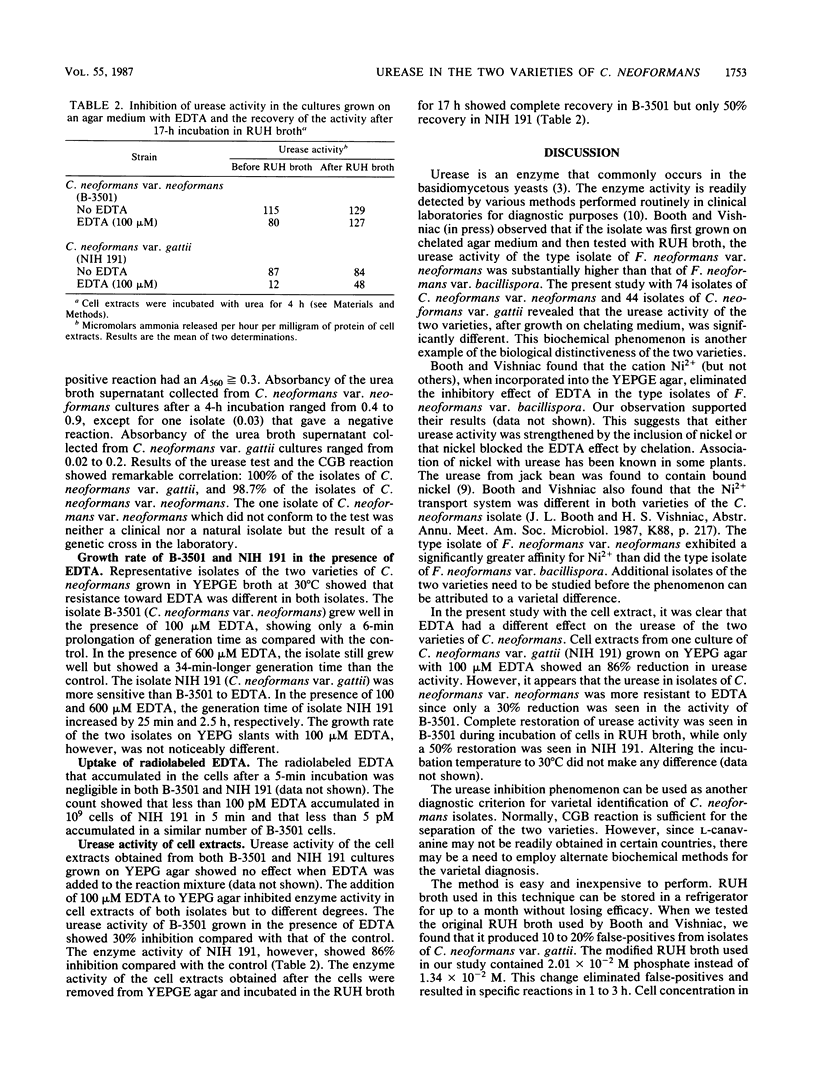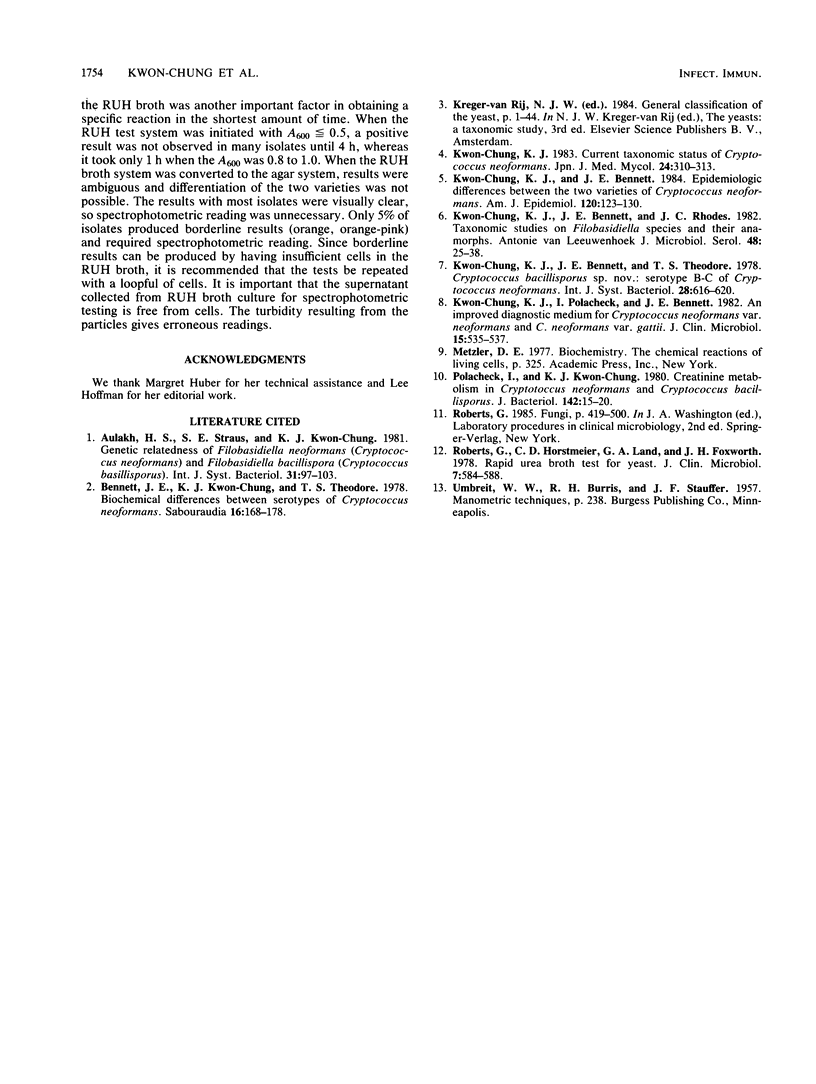Abstract
Cryptococcus neoformans var. neoformans (74 isolates) and C. neoformans var. gattii (44 isolates) were used to test urease activity after growth on both yeast extract-glucose-peptone agar (YEPG) and on YEPG supplemented with 100 microM EDTA. Every isolate grown on YEPG agar for 48 h at 30 degrees C produced a positive reaction within 1 h in a modified rapid urease assay at 37 degrees C. However, isolates grown on YEPG with 100 microM EDTA showed a distinct pattern which corresponded to their varietal status. All but 1 of 74 C. neoformans var. neoformans isolates (98.7%) produced a positive reaction within 1 to 4 h, while none of 44 C. neoformans var. gattii isolates produced a positive reaction within the same period. The urease inhibition results and the canavanine-glycine-bromthymol blue agar test results showed 100% correlation among isolates of C. neoformans var. gattii and 98.7% correlation among isolates of C. neoformans var. neoformans. Two representative isolates of C. neoformans var. gattii (serotypes B and C) were further tested for urease during a prolonged incubation period in urea broth. These isolates failed to show a positive reaction even after 11 h of incubation. The uptake of EDTA was negligible in the two varieties. Extracts of cells grown on YEPA agar showed a high level of urease activity in both varieties. Extracts of cells grown on the agar with 100 microM EDTA showed a marked reduction (86%) of urease activity in one isolate of C. neoformans var. gattii but showed only a 30% reduction in one isolate of C. neoformans var. neoformans. Based on these results, the differential effect of EDTA on the two varieties of C. neoformans appeared to be due to greater inhibition of urease synthesis in C. neoformans var. gattii.
Full text
PDF



Selected References
These references are in PubMed. This may not be the complete list of references from this article.
- Kwon-Chung K. J., Bennett J. E. Epidemiologic differences between the two varieties of Cryptococcus neoformans. Am J Epidemiol. 1984 Jul;120(1):123–130. doi: 10.1093/oxfordjournals.aje.a113861. [DOI] [PubMed] [Google Scholar]
- Kwon-Chung K. J., Bennett J. E., Rhodes J. C. Taxonomic studies on Filobasidiella species and their anamorphs. Antonie Van Leeuwenhoek. 1982;48(1):25–38. doi: 10.1007/BF00399484. [DOI] [PubMed] [Google Scholar]
- Kwon-Chung K. J., Polacheck I., Bennett J. E. Improved diagnostic medium for separation of Cryptococcus neoformans var. neoformans (serotypes A and D) and Cryptococcus neoformans var. gattii (serotypes B and C). J Clin Microbiol. 1982 Mar;15(3):535–537. doi: 10.1128/jcm.15.3.535-537.1982. [DOI] [PMC free article] [PubMed] [Google Scholar]
- Polacheck I., Kwon-Chung K. J. Creatinine metabolism in Cryptococcus neoformans and Cryptococcus bacillisporus. J Bacteriol. 1980 Apr;142(1):15–20. doi: 10.1128/jb.142.1.15-20.1980. [DOI] [PMC free article] [PubMed] [Google Scholar]
- Roberts G. D., Horstmeier C. D., Land G. A., Foxworth J. H. Rapid urea broth test for yeasts. J Clin Microbiol. 1978 Jun;7(6):584–588. doi: 10.1128/jcm.7.6.584-588.1978. [DOI] [PMC free article] [PubMed] [Google Scholar]


